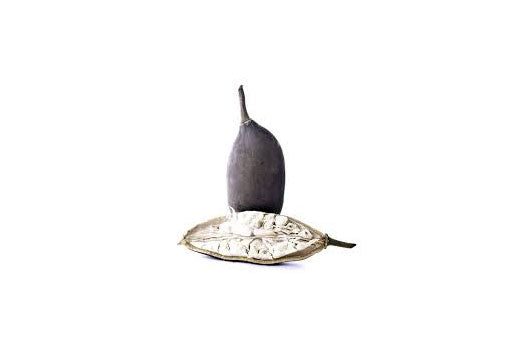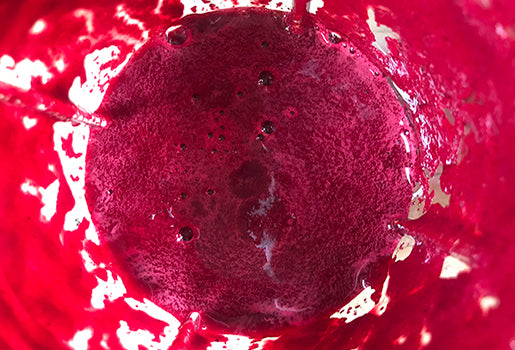What You Need to Know About Oils Before Buying Your Next Body Oil-Part I

I had the most relaxing weekend--actually no, not quite. My kids were driving me nuts but I did find refuge in immersing myself in the world of botanicals, and can I just please say, botanicals are truly healing. The energy, the colors, the vibration and the amazing health benefits many of them have is so inspiring.
It's not obvious how beneficial they are especially in this culture where we are accustomed to buying pharmaceutical drugs when ill. And only up until very recently has the beauty industry started incorporating trace elements from plants into our beauty care regime. For some, it was by the grace of this industry that they discovered that plants were beneficial. For many others, like myself, they got the beauty industry to listen to the market demands for green holistic products because of their cultural, or innate, understanding and appreciation for herbal healing.
But beyond our insightful predilection for natural cures, what do we really know about the healing benefits of plants and their oils? Despite efforts to market body oils, there is so much doubt about their benefits for your skin and it doesn't help when the market keeps adding a new oil trend to then quickly recant their claims to replace it with another, which by the way says nothing about the oil but rather a marketing strategy.
Botanical oils have the amazing potential of being truly nutritious for your skin. However, with oil having been frowned upon, it's making it hard for many to transition to using oil. Why the resistance or skepticism? You will understand why when we look at our oil culture and reveal what's being done to our oil!
The way oils have been processed and treated in the West have severely altered their properties, rendering them to nothing more than a non-stick element or a hydrogenated ingredient for processed foods and cosmetics. Obviously, that wouldn't seem like something you want on your skin. "Pore-clogging" and "greasy" were the only characteristics that were associated with oils, and rightfully so.
Mineral oil was the first skincare oil to enter the US market, and it did a great job simply because companies like Johnson & Johnson had so much clout that anything they put on the shelves was trusted. Mineral oil became popularized as people saw how amazingly smooth it was, it protected from dry skin as it sealed-in moisture, it was easily spreadable, and boy was it CHEAP! Dermatologists even started promoting this product because they appreciated it from a medical standpoint: as it didn't contain proteins, polyphenols or phytosterols they were certain it wouldn't irritate their clients' skin. It was soothing and also effective against fungus--probably because it suffocated it.
But, mineral oil, like Vaseline and petroleum jelly are by-products of the oil refinery: petroleum jelly was discovered in 1859 in a coal mine in PA. It was a big, black, waxy mass of petroleum, which still contains trace elements of gasoline. Vaseline and mineral oil are made from petroleum jelly by adding a few extra additives to make it texturally pleasant and smell nicer, but other than that it's basically the same thing. Its molecules are too large to enter your bloodstream but as it sits on the surfaces of your skin there is still debate on whether or not it clogs your pores--some do say that smaller molecules do manage to seep into the skin. In either case, however, mineral oil and its cousins are incompatible with the skin's own function: lacking a fatty acid counterpart, it prevents fat-soluble vitamins and nutrients from being absorbed into the skin. Furthermore, it is incompatible with sebum, hindering its output and inhibiting its proper function whilst also preventing the body from absorbing moisture in the air. As a matter of fact, people with acne were advised to apply mineral oil because it stopped sebum from surfacing, leading people to think that mineral oil was indeed safe and that acne was due to too much sebum--neither of which is true, by the way.
Despite all these negative traits, mineral oil continues to saturate the market because it's application is versatile, it doesn't become rancid, and it's cheap for manufacturers. But notice that the very things that make this oil so bad or ineffective (at the very least) is what makes highly refined, non-organic vegetable oils just as bad.
Commercial grade oils, whether for consumption or, as of late, for cosmetics, are highly refined in order to secure uniformity, shelf stability, and non-offensive smells that may counter other fragrant ingredients. In order to create such a bland, non-rancid prone, user-friendly product the refining process involves 4-steps that completely strip away the beneficial and even healing properties of an oil:
- Refining: this is the degumming phase that undergoes an alkali treatment to remove wax and fats, removing along with it, by default, vitamins, nutrients and conditioning agents.
- Bleaching: this is to remove the color and to neutralize free fatty acids which are very important for your health.
- Winterizing: this yet another attempt at removing all the fats, fatty acids and waxes from an oil to make sure that oils do not harden or change consistency when the temperature drops.
- Deodorizing: this is to remove strong smells. This is done by steam distillation under a vacuum to suck up plant odors. This is the least harmful phase.
After this what are you left it with? A greasy, occlusive, pore-clogging liquid that does absolutely NOTHING for your skin.
It's really truly sad to see what our "fast-food", "fast-fashion" culture has done to these plants. We cultivate them for a single purpose while discarding the healing properties because it's too expensive to work with it. Subsequently, we end up only with a commercialized, generic, devoid oil that serves only as convenient filler, lubricant, binding agent and emollient in skincare products posing under the guise of a nutrient-rich phyto ingredient.
Does this mean that oils are bad for you? Does this mean that people are correct in their skepticism? No oils are not bad. It's what's done to them that make it bad. A minimally processed oil is excellent for your skin and in my next blog post, I will explain why. And yes, people are completely justified in their skepticism, and I hope that this post makes you see why you should be skeptical. But I also hope that you will read my next post so that you can learn about the truly amazing health benefits these plants can provide you!
1 Response
Leave a comment
Comments will be approved before showing up.




Mary H Anderson
March 07, 2018
Excellent topic with real facts and understandable explanation of why processed oils used in skin care are detrimental. Looking forward to the part 2.